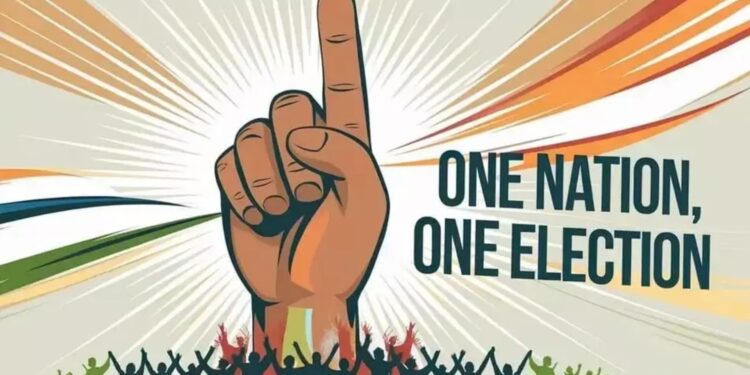On Thursday, the Union Cabinet approved the “One Nation, One Election” policy, a landmark decision to hold simultaneous elections for the Lok Sabha and State Assemblies. The proposal, which the government endorsed, is set to be presented as a comprehensive Bill during the ongoing Winter Session of Parliament.
The idea of simultaneous elections was first put forward by a High-Level Committee led by former President Ram Nath Kovind, which was tasked with examining the feasibility of such a system. In its report, the committee emphasized that holding elections simultaneously would reduce costs and ensure more efficient governance and better focus on national development. The panel argued that it would lead to fewer disruptions in governance due to the frequent election cycles that hinder progress and would also strengthen the democratic fabric by focusing the country’s attention on national issues rather than state-level contests.
The report also identified the constitutional and legal amendments required to implement this policy. It stated that while some amendments would require approval from state legislatures, others could be enacted directly by Parliament. This dual approach would allow for a smoother transition toward simultaneous elections while addressing federalism and regional autonomy concerns.
Following the committee’s recommendations, the Union Cabinet approved the proposal in September, signalling the government’s commitment to moving forward with this reform. The plan received widespread support from four former Chief Justices of India (CJIs)—Dipak Misra, Ranjan Gogoi, Sharad Arvind Bobde, and UU Lalit. The former CJIs participated in consultations, and all supported the idea, recognizing the potential advantages of reducing election-related expenditures and ensuring more focused governance.
Of the 12 former High Court judges consulted on the issue, nine expressed support for implementing simultaneous elections, citing long-term benefits for the nation. However, three judges raised concerns over the practical and constitutional challenges of the proposal. These included former Delhi High Court Chief Justice AP Shah, Calcutta High Court judge Justice Girish Chandra Gupta, and Madras High Court Chief Justice Sanjib Banerjee. Their objections centred mainly around the impact on regional representation, the potential erosion of federal structure, and logistical challenges in synchronizing elections across diverse states.
The approval of “One Nation, One Election” marks a historic step toward electoral reform in India. It could fundamentally reshape the country’s electoral landscape, bringing challenges and opportunities for more streamlined governance.
The Union Cabinet has given its approval to the “One Nation, One Election” initiative, aimed at synchronizing Lok Sabha and State Assembly elections across the country to reduce electoral costs and streamline governance.
Previous Post

















